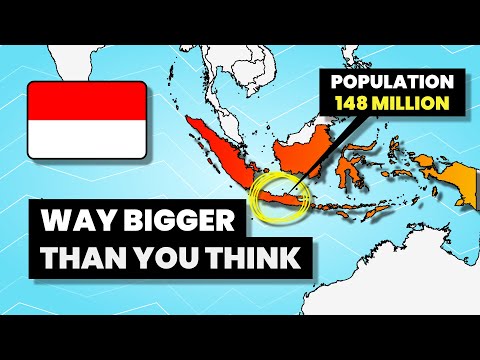
Indonesia, the world’s largest archipelago nation, is a beguiling mix of spectacular natural landscapes, profound traditions, and a rapidly evolving society. Stretching across more than 17,000 islands, some of which are among the most well-known on the planet while others remain virtually undiscovered, Indonesia presents a mosaic of cultural and ecological diversity that is as broad as the equatorial waters that surround it.
### Geographical Diversity
Located between the Indian and Pacific Oceans, Indonesia covers a vast area that includes some of the world’s most famous islands such as Bali, Java, Sumatra, Sulawesi, and part of Borneo and New Guinea. This unique geographic setting not only makes Indonesia a key player in maritime trade routes but also endows it with one of the richest biodiversities in the world. The archipelago is home to lush rainforests teeming with wildlife where orangutans swing from tree to tree, while its underwater ecosystems boast some of the planet’s most vibrant coral reefs.
### Cultural Tapestry
Indonesia’s cultural diversity is unparalleled. With over 300 ethnic groups speaking more than 700 languages, each island has its own customs, traditions, and religious practices. Java is the political and economic heartland with bustling cities like Jakarta but also hosts ancient spiritual emblems such as Borobudur and Prambanan temples. Bali shines through with its Hindu festivities and pristine beaches. In contrast, regions like Papua preserve age-old rituals that have remained unchanged for millennia.
### Historical Journey
The history of Indonesia is marked by waves of migration and trade influences from Indian Hinduism-Buddhism to Islamic sultanates which shaped its early-day kingdoms. Colonial periods under Portuguese first and then Dutch rule left an indelible mark on Indonesian society – seen in everything from architecture to local cuisines. Post World War II brought about independence in 1945 under Sukarno’s leadership which transitioned into Suharto’s New Order – times during which Indonesia underwent significant political turbulence.
### Economy on The Rise
Today’s Indonesia stands proud as Southeast Asia’s largest economy propelled by manufacturing industries specializing in electronics to textiles; however agriculture still remains significant with palm oil leading exports along with natural resources such as coal. The nation has also seen exponential growth in digital entrepreneurship evidenced by booming tech start-ups across major cities.
### Challenges Ahead
Despite its growth trajectory being impressive on many fronts; Indonesia faces considerable challenges ranging from infrastructural deficits especially affecting remote islands due to their dispersed nature – resulting in uneven development distribution; environmental concerns are also pressing given deforestation rates impacting biodiversity hotspots negatively compounded by climate change implications.
### Tourism: A Gateway to Discovery
Tourism in Indonesia offers an expansive array for any traveler – whether it be walking through historical ruins suggestive of past empires or sunbathing at secluded beaches offering tranquil retreats away from modern-day demands. Eco-tourism is increasingly popular too with opportunities for trekking volcanic landscapes or diving among untouched corals making responsible travel ever so pertinent within this ecological paradise.
Indonesia continues to balance modernity with tradition; its struggles juxtaposed against resilient strides forward make it an endlessly fascinating country worth exploring both culturally and geographically. As it navigates through complexities inherent within such diversity – understanding this enchanting archipelago becomes all the more imperative for those looking beyond mere exotic allure; instead aiming towards grasping deeper societal nuances shaping current-day Indonesia.
